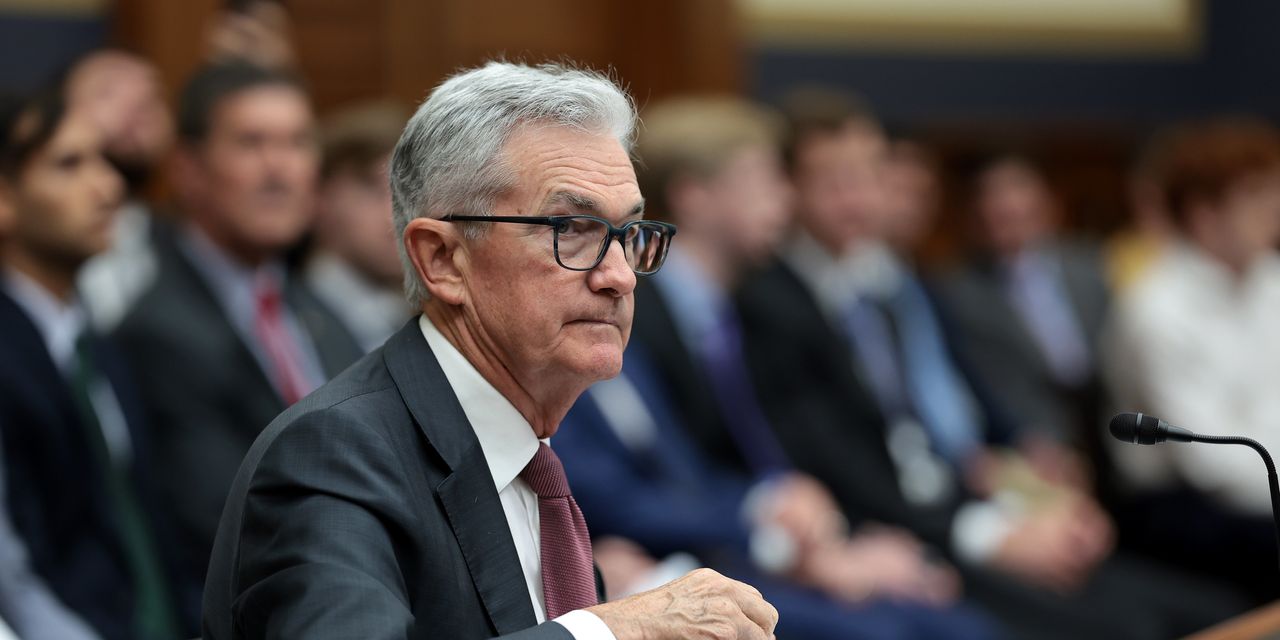Powell sees a way for inflation to cool without significant job losses

Fed Chairman Jerome Powell said Thursday that US inflation could subside without a significant increase in unemployment.
At a Senate Banking Committee hearing, Powell was asked by Senator Tina Smith, a Republican from North Dakota, if she saw “a way for inflation to continue to slow without seeing significant job losses and harming middle-class families.” Powell replied, “I am.”
Chairman Powell said the labor market was gradually cooling and “that’s what we want to see.”
Economists say the biggest surprise for the US economy this year, despite the Fed’s rapid rate hikes over the past 15 months, is the continued strength of the labor market.
On the one hand, economists say a resilient labor market means that the Fed’s tightening monetary policy will cause a “soft landing” or “minor recession” in the economy.
But other economists fear that a strong labor market could make it more difficult to ultimately lower the central bank’s 2% target.
Harvard economist Jason Furman told The New York Times that there is a “worst case scenario” in which unemployment would have to rise close to 10% to bring inflation back to target.
The unemployment rate is currently 3.7%, and Fed officials predict it will rise to 4.5% by the end of 2024.
Democrats on the Senate panel said they supported the Fed’s decision to keep rates stable after raising rates at every meeting since March.
“This is welcome news for many who fear that further rate hikes will do more harm than good,” said Senator Sherrod Brown of Ohio, who chairs the Banking Committee.
Powell has said on several occasions that a “strong majority” of Fed officials thinks the Fed is planning two more 25 basis point hikes by the end of the year. That would bring Fed rates into the 5.5%-5.75% range.
Responding to the senators’ concerns, Powell said the Fed was “trying to avoid the mistake of going too far.”
“It makes sense to move cautiously,” Powell added.
On the banking sector, Powell said the Fed is working with smaller banks focused on commercial real estate lending.
“We are working with the bank to address this issue,” Powell said.
The sharp collapse of Silicon Valley banks in early March drew attention to potentially painful losses lurking at banks in commercial real estate loans with trillions of dollars on their books. As many Americans continue to work from home, the value of office buildings has plummeted.
Republicans on the Senate panel argued that the Fed’s plan to raise capital standards for banks in the aftermath of this spring’s bank failures would hurt the banking sector and lead to less lending to businesses.
“My question is, how much is too much? When is enough? “The higher the capital standard, the lower the private sector’s capital, resulting in less borrowing and capital from the people who are actually creating jobs.”
Powell said the Fed has not yet completed its bank recapitalization plan. He said he did not expect the final version to raise the capital bar for banks with less than $100 billion in assets.
Senator Elizabeth Warren, a Democrat from Massachusetts, said she didn’t think Powell was taking enough responsibility for a string of bank failures earlier this year.
In a tentative conversation, Powell said he was focused on learning the right lessons to ensure there are no repeats of massive bank failures spreading infection in the banking system.
“My focus is moving forward,” Powell said.
See also: FDIC Study Plans To Include Small US Banks In Basel III Capital Requirement After Failure In Early 2023
#Powell #sees #inflation #cool #significant #job #losses





